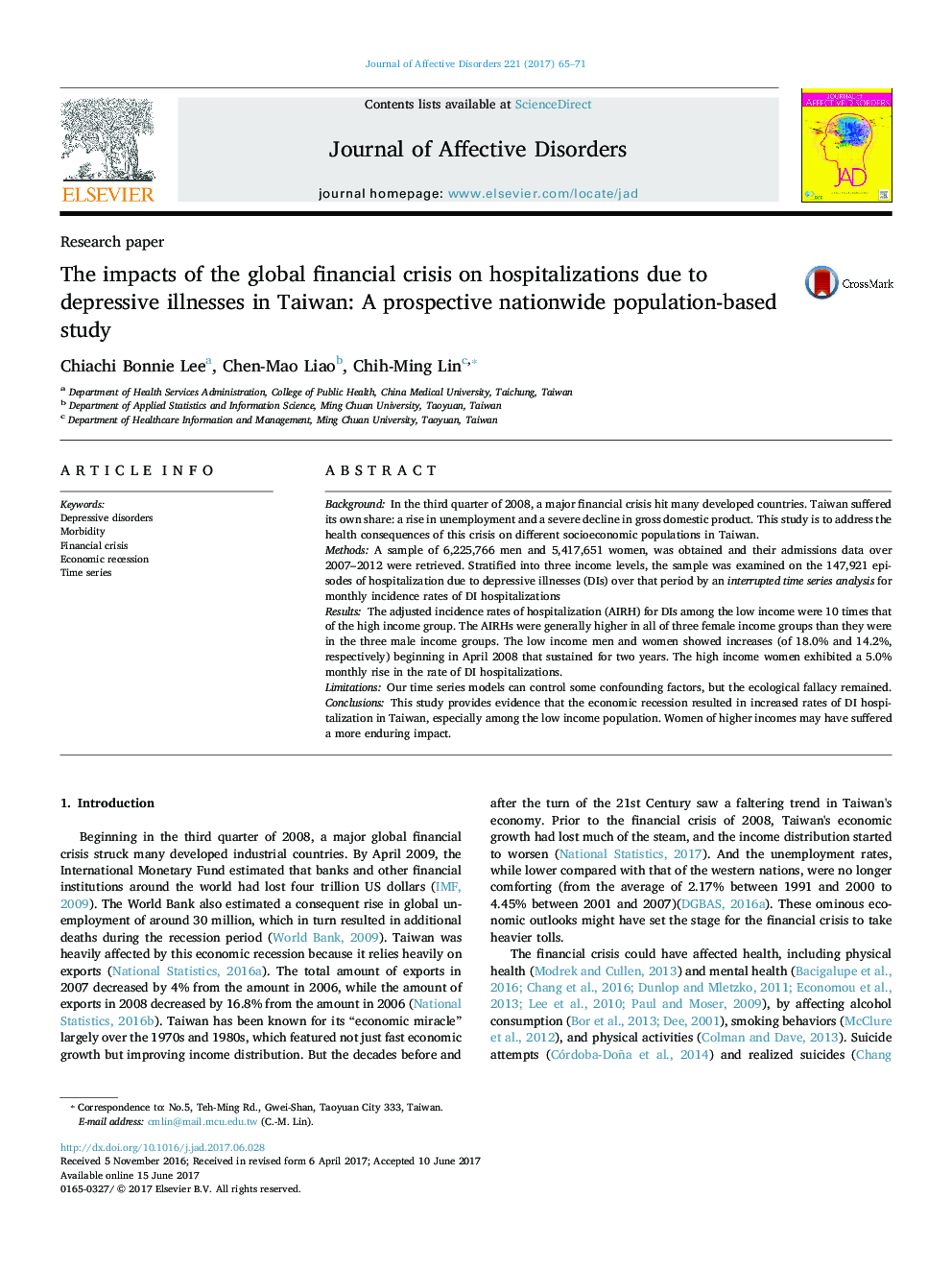| کد مقاله | کد نشریه | سال انتشار | مقاله انگلیسی | نسخه تمام متن |
|---|---|---|---|---|
| 5721992 | 1608104 | 2017 | 7 صفحه PDF | دانلود رایگان |
- Macroeconomics has diverse mental health impacts on different socioeconomic subgroups.
- The low income group was more vulnerable to DIs due to the economic recession.
- The great recession influenced the rate of DIs among high income women but not men.
- The number of DI hospitalizations among women was higher than that among men.
BackgroundIn the third quarter of 2008, a major financial crisis hit many developed countries. Taiwan suffered its own share: a rise in unemployment and a severe decline in gross domestic product. This study is to address the health consequences of this crisis on different socioeconomic populations in Taiwan.MethodsA sample of 6,225,766 men and 5,417,651 women, was obtained and their admissions data over 2007-2012 were retrieved. Stratified into three income levels, the sample was examined on the 147,921 episodes of hospitalization due to depressive illnesses (DIs) over that period by an interrupted time series analysis for monthly incidence rates of DI hospitalizationsResultsThe adjusted incidence rates of hospitalization (AIRH) for DIs among the low income were 10 times that of the high income group. The AIRHs were generally higher in all of three female income groups than they were in the three male income groups. The low income men and women showed increases (of 18.0% and 14.2%, respectively) beginning in April 2008 that sustained for two years. The high income women exhibited a 5.0% monthly rise in the rate of DI hospitalizations.LimitationsOur time series models can control some confounding factors, but the ecological fallacy remained.ConclusionsThis study provides evidence that the economic recession resulted in increased rates of DI hospitalization in Taiwan, especially among the low income population. Women of higher incomes may have suffered a more enduring impact.
Journal: Journal of Affective Disorders - Volume 221, 15 October 2017, Pages 65-71
